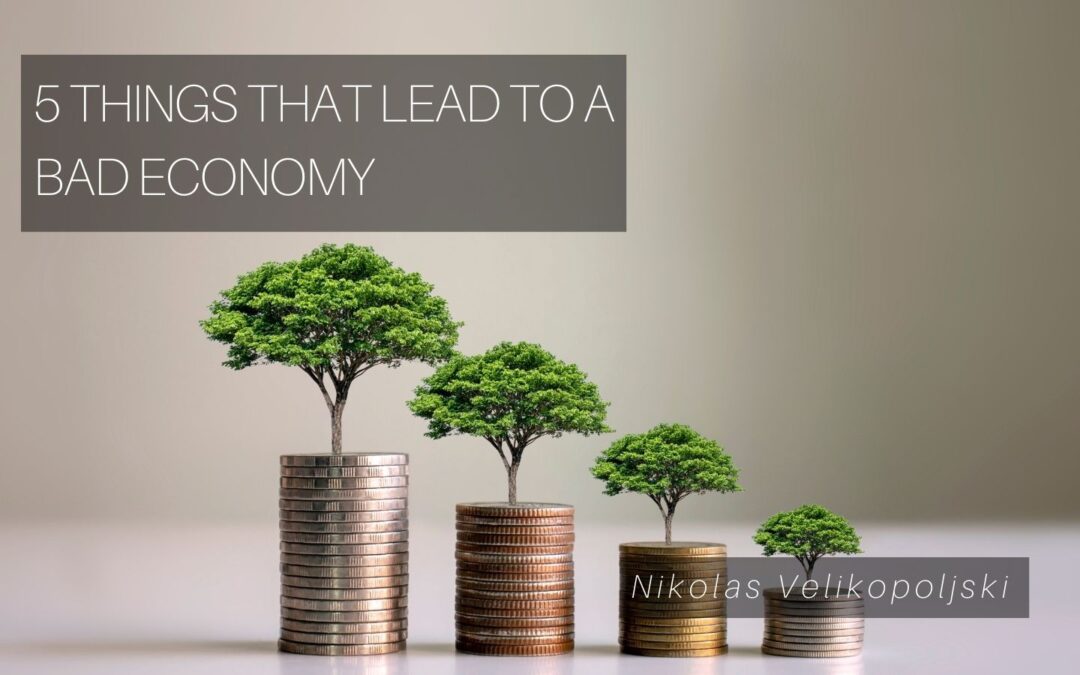As thought leaders and professionals in our respective fields, it is crucial to have a comprehensive understanding of the various factors that can negatively impact an economy. Recognizing these elements allows us to make informed decisions and develop strategies to mitigate their effects.
Policy Instability and Uncertainty
One of the primary contributors to a weakened economy is policy instability and uncertainty. Governments frequently change regulations, tax laws, or economic policies without a clear and consistent framework, which hampers business confidence and stifles investment. Uncertainty creates an unfavorable environment for long-term planning and can discourage domestic and foreign investors. A lack of stability in policies can lead to volatile markets, reduced consumer spending, and hindered economic growth. Therefore, fostering an environment of peace and predictability through transparent and consistent policies is vital for a thriving economy.
Weak Governance and Corruption
The presence of weak governance and widespread corruption undermines economic progress. When public officials and institutions lack accountability and engage in corrupt practices, it erodes public trust, discourages investment, and diverts resources from productive sectors. Corruption increases transaction costs, distorts market mechanisms, and deters domestic and foreign investors. Establishing robust governance systems, promoting transparency, and enforcing anti-corruption measures are critical for fostering a healthy economic environment that attracts investments and encourages sustainable growth.
Inadequate Infrastructure
A well-developed infrastructure is the backbone of a thriving economy. Inadequate infrastructure, such as outdated transportation networks, insufficient power supply, and limited access to essential services, can impede economic productivity and hinder growth. It reduces efficiency, increases business costs, and limits expansion opportunities. Investing in infrastructure development, including transportation, energy, telecommunications, and public services, not only enhances economic activity but also attracts private investment and promotes job creation.
Education and Skills Gap
A skilled and educated workforce is a fundamental driver of economic development. A significant factor that can hamper economic growth is the education and skills gap. When there is a mismatch between skills required by the job market and the skills the workforce possesses, productivity suffers, innovation stagnates, and competitiveness declines. Investing in quality education, vocational training, and lifelong learning programs is essential to bridge the skills gap and equip the workforce with the capabilities needed for a knowledge-based economy.
Inequality and Lack of Social Mobility
Societies plagued by high levels of income inequality and limited social mobility often experience negative economic consequences. When wealth and opportunities are concentrated in the hands of a few, it stifles entrepreneurship, hampers innovation, and creates social and economic divisions. Inequality can reduce consumer demand, limit access to credit for small businesses, and hinder investment in human capital. Promoting policies that address inequality, such as progressive taxation, social safety nets, and inclusive economic opportunities, fosters a more equitable society and contributes to sustainable economic growth.
Understanding the factors that lead to a weakened economy is crucial for thought leaders and professionals seeking to drive positive change. Policy instability and uncertainty, weak governance, inadequate infrastructure, education and skills gaps, and inequality contribute to an ailing economy. By addressing these challenges through stable policies, strong government, infrastructure investments, education and skills development, and inclusive economic opportunities, we can pave the way for a robust and sustainable financial future. Let us work together to build economies that thrive, benefiting individuals, businesses, and societies.

